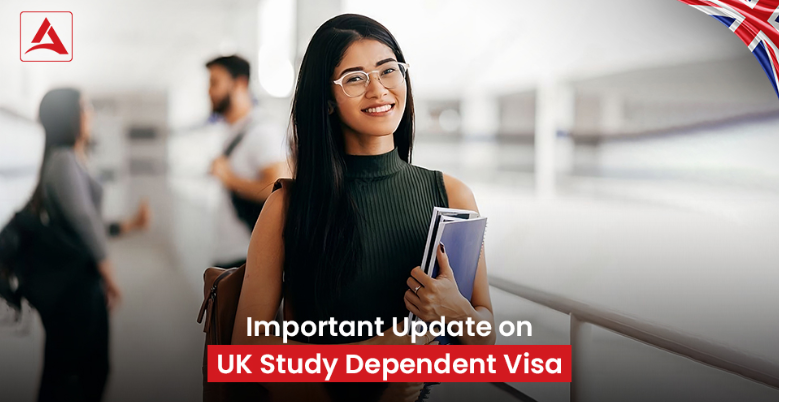
Studying abroad offers a myriad of opportunities for international students seeking quality education and enriching experiences. For those considering the United Kingdom as their educational destination, the option of pursuing studies on a dependent visa has become increasingly popular. This article delves into the ins and outs of studying on a dependent visa in the UK, exploring the eligibility criteria, educational prospects, work rights, healthcare entitlements, and the challenges faced by dependents. By shedding light on this avenue, we aim to provide valuable insights to aspiring students and their families, empowering them to make informed decisions about their educational journey in the UK.
Eligibility Criteria for Dependent Visas in the UK
1. Relationship Qualification:
To be eligible for a dependent visa in the UK, the applicant must have a qualifying relationship with the primary visa holder. Generally, this includes being the spouse, civil partner, or unmarried partner (living together for at least two years) of the primary visa holder. Children under the age of 18 may also be eligible as dependents.
2. Primary Visa Holder’s Status:
The dependent’s eligibility is contingent on the primary visa holder’s status. The primary applicant must hold a valid visa in one of the following categories: Tier 4 (General) student visa, Tier 4 (Child) student visa, or a Student visa (introduced after January 2021).
3. Financial Requirements:
Dependent visa applicants must meet specific financial criteria. They need to demonstrate that they have enough funds to support themselves without relying on public funds in the UK. The required amount may vary based on individual circumstances, and it is essential to refer to the latest guidance provided by the UK Home Office.
4. English Language Proficiency:
In certain cases, applicants may need to prove their proficiency in the English language. This requirement is generally exempt for applicants from English-speaking countries or those who have completed a degree-level course in English.
5. Immigration Health Surcharge (IHS):
Dependent visa applicants are usually required to pay the Immigration Health Surcharge (IHS) as part of their visa application. The IHS grants access to the National Health Service (NHS) in the UK.
6. Maintenance Funds:
Dependent visa applicants may need to provide evidence of sufficient maintenance funds to cover living costs during their stay in the UK. This requirement ensures that dependents can support themselves without relying on public funds.
7. Application Process:
Applicants must submit their visa applications from outside the UK and provide all required supporting documents, such as passports, relationship proof, financial documents, and the primary visa holder’s details.
8. Age Restrictions:
For dependent children, there may be age restrictions, and eligibility could depend on factors such as whether they are studying in the UK and their age at the time of application.
Enrolling in Educational Institutions on a Dependent Visa in the UK
Primary Education for Dependent Children:
Secondary Education for Dependent Children:
Higher Education for Dependent Partners/Spouses:
Student Loans and Financial Support:
Part-Time Study:
Enrolling in Educational Institutions:
Switching to a Student Visa:
Working Rights and Restrictions for Dependent Visa Holders in the UK:
Part-Time Work Rights:
Employment Sectors:
Self-Employment and Freelancing:
Minimum Age Requirement:
Immigration Health Surcharge (IHS) and Access to the National Health Service (NHS):
Hours of Work Monitoring:
Reporting Changes to the Home Office:
Dependent Partner/Spouse Work Rights:
Extending and Switching Visa Status on a Dependent Visa in the UK
Extending Dependent Visa:
Educational Progression:
Financial Requirements:
Switching to Other Visa Categories:
Tier 2 (General) Work Visa:
Indefinite Leave to Remain (ILR):
Seeking Professional Advice:
Challenges and Considerations for Dependent Visa Holders in the UK:
Visa Compliance:
Adhering to visa regulations and maintaining legal status is paramount for dependent visa holders. Any failure to comply with visa conditions, such as working beyond permitted hours or overstaying the visa, can lead to severe consequences, including visa curtailment, deportation, or future visa refusals.
Limited Work Rights:
The restriction of working part-time, while necessary to maintain visa compliance, may pose financial constraints for dependent visa holders who rely on income to support themselves and contribute to their expenses.
Financial Responsibility:
Dependent visa holders must be financially responsible for themselves and any dependents during their stay in the UK. Meeting living expenses, tuition fees (if applicable), and other costs can be challenging, especially if the primary visa holder faces financial difficulties or interruptions in their studies or employment.
Uncertain Immigration Rules:
Immigration rules and policies may change, impacting dependent visa holders' future plans and prospects in the UK. Keeping abreast of the latest updates and seeking professional advice is crucial to understanding the implications of any changes.
Educational Transition:
Dependent children may experience challenges related to adapting to a new education system, curriculum, and language if they are attending school in the UK for the first time. Academic adjustments and social integration may require additional support and patience.
Healthcare Coverage:
Although dependent visa holders pay the Immigration Health Surcharge (IHS), accessing healthcare services may still present challenges, such as long waiting times or limitations in coverage for certain medical conditions.
Future Immigration Pathways:
Dependent visa holders may face uncertainties regarding their long-term immigration options, such as transitioning to settlement status (Indefinite Leave to Remain) or seeking permanent residency in the UK.
Conclusion: Dependent Visa Holders in the UK:
Studying on a dependent visa in the United Kingdom can be a compelling path for international students and their families. While navigating the visa process and adjusting to a new environment may present challenges, the benefits of accessing world-class education and cultural experiences are undoubtedly rewarding. By meeting the eligibility requirements, understanding the educational opportunities available, and adhering to visa regulations, students and their dependents can embark on a fulfilling academic journey together in the UK. With proper planning, determination, and support, studying on a dependent visa can be a transformative experience that broadens horizons and opens doors to a brighter future.